
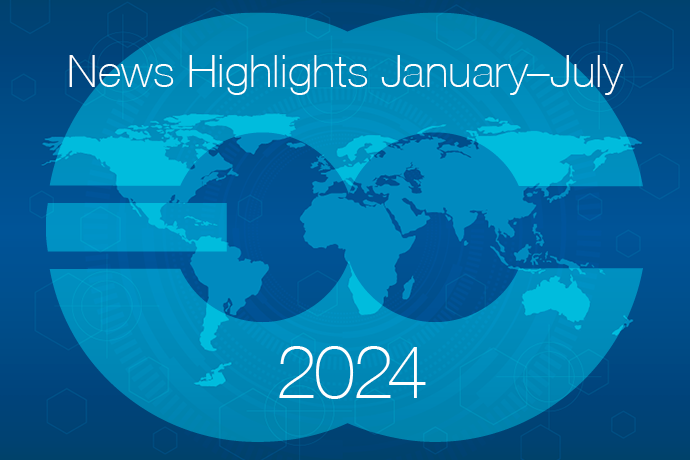
ECMWF news highlights in the first seven months of 2024 include updates on forthcoming improvements in the Integrated Forecasting System (IFS), initiatives to drive forward weather science, and news from the EU-funded services implemented by ECMWF.
Forecast developments
In the next upgrade of the IFS, changes in the ocean wind wave model component will be implemented which improve forecasts. The upgrade from IFS Cycle 48r1 to 49r1 is scheduled for the autumn.
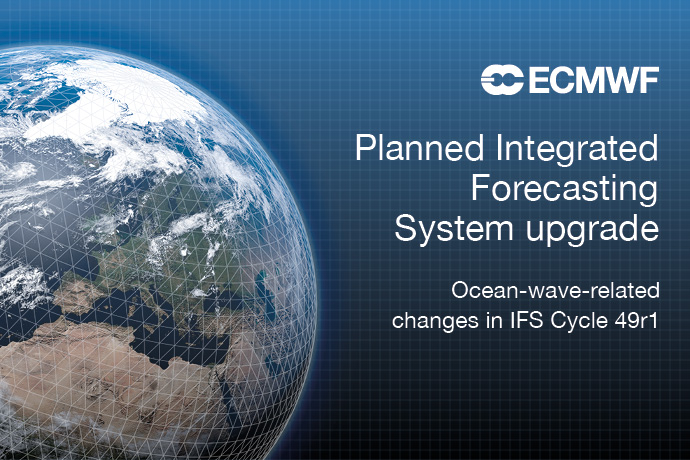
In the same upgrade, other changes will improve forecasts of two-metre temperature.
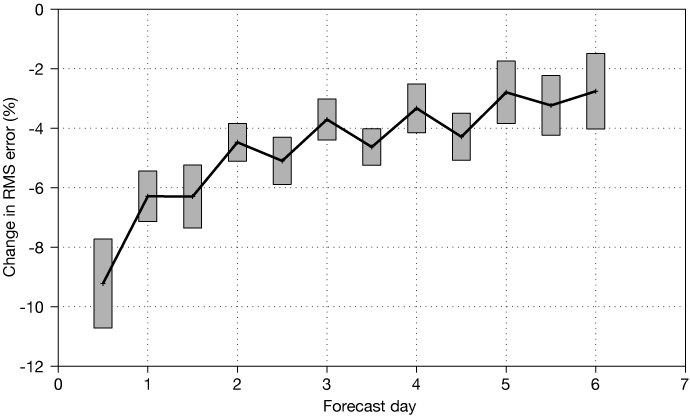
The impact of Cycle 49r1 on two-metre temperature forecasts verified against SYNOP observations (percentage change in root-mean-square error) for December 2021 to February 2022, 20°–90°N. The grey rectangles show 95% confidence intervals.
In February, we reported that ECMWF now provides a much larger open dataset to the public, representing weather forecasts at a higher resolution and a reduction in some release times.

Credit: NicoElNino / iStock / Getty Images Plus
ECMWF’s Member States have approved two major initiatives aimed at intensifying the development, testing and implementation of machine learning across their weather forecasting chains.
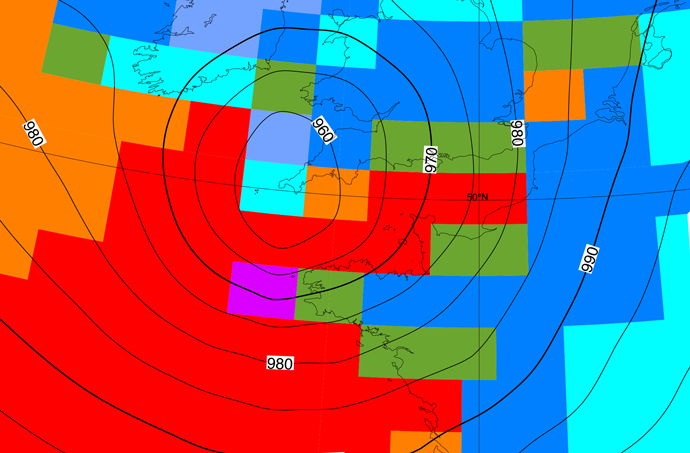
Driving forward weather science
In the summer of 2023, ECMWF started to create a data-driven forecasting system, called the AIFS. In June 2024, we introduced a first probabilistic version. You can read about it in the AIFS blog.
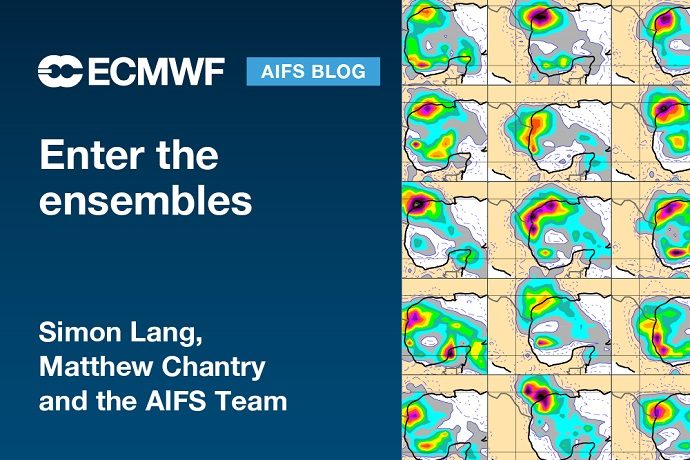
Progress has also been made in applying machine learning tools to adjust the initial conditions and the trajectory of physics-based forecasts. These developments are part of a bigger drive at ECMWF to combine physics-based models with observation-driven machine learning models.
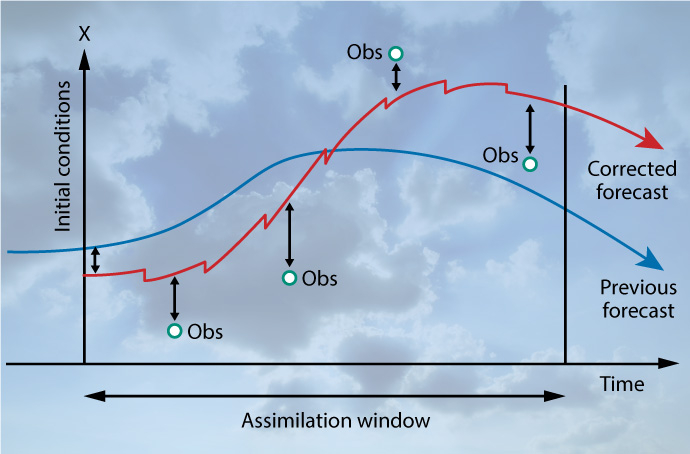
A new satellite called EarthCARE, launched in May 2024, will provide unprecedented data on clouds and aerosols that will help ECMWF to initialise its weather forecasts.
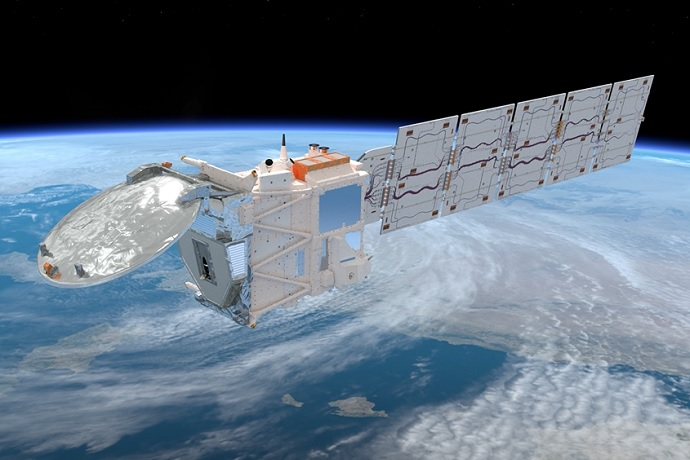
Credit: ESA/ATG medialab
ECMWF held the 5th workshop on ocean waves and wave-coupled processes in Reading (UK) from 10 to 12 April 2024. Ocean surface waves play a critical role in the Earth system, modulating many surface exchanges and acting in both atmospheric and oceanic boundary layers.
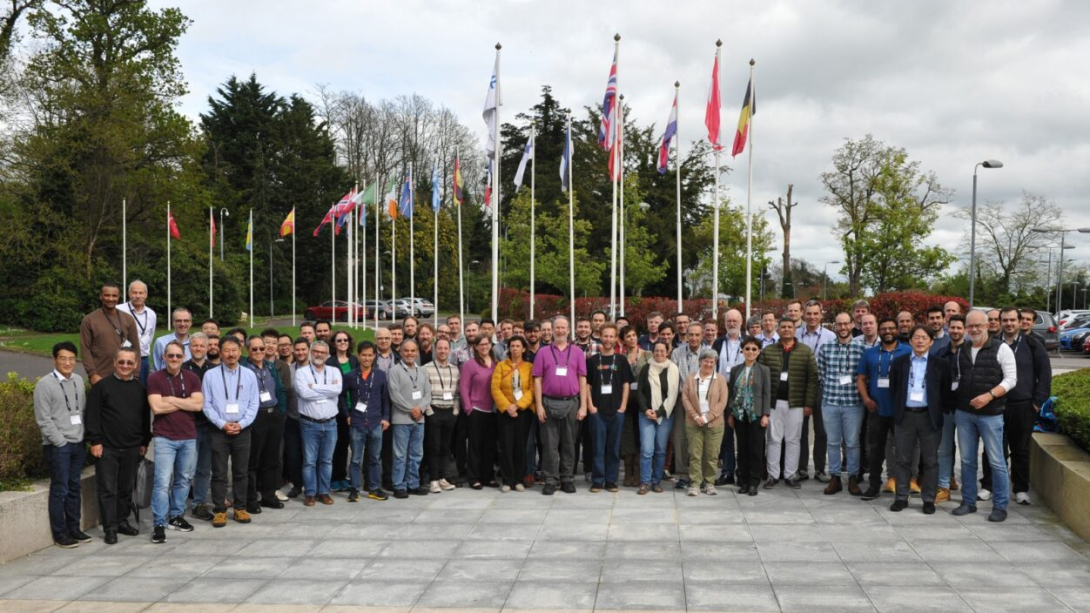
EU-funded services
One third of the European river network saw river flows exceeding the ‘high’ flood threshold in 2023, and the year saw a record number of days with ‘extreme heat stress’ in Europe, according to a report released by the EU’s Copernicus Climate Change Service (C3S), implemented by ECMWF, and the World Meteorological Organization (WMO).
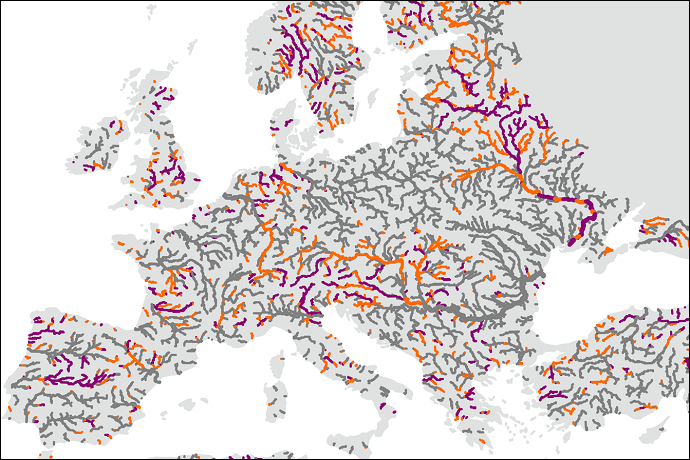
Data source: EFAS. Credit: CEMS/C3S/ECMWF.
The EU-funded Copernicus Climate Change Service (C3S), implemented by ECMWF, has provided new tools to make it easier for users to explore how the climate has been changing and how it could change in the future.
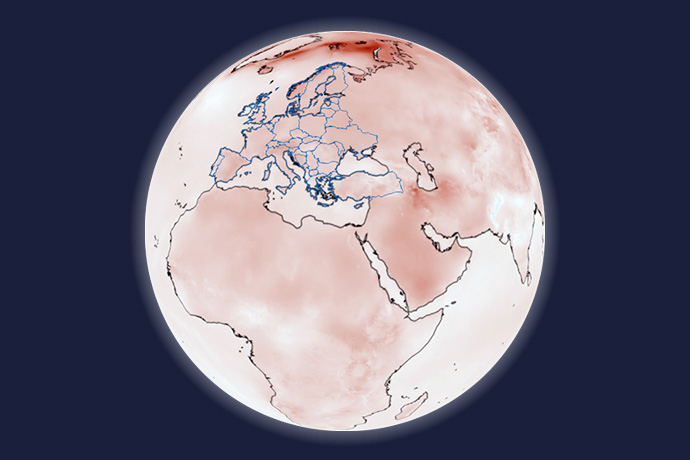
The three-year, ECMWF-coordinated project for a prototype system for a Copernicus CO2 service (CoCO2) to monitor anthropogenic CO2 emissions worldwide has concluded its programme. It will feed into a permanent anthropogenic greenhouse gas emissions Monitoring and Verification Support Capacity (CO2MVS), which is being developed as part of the EU’s Copernicus Atmosphere Monitoring Service (CAMS), implemented by ECMWF.
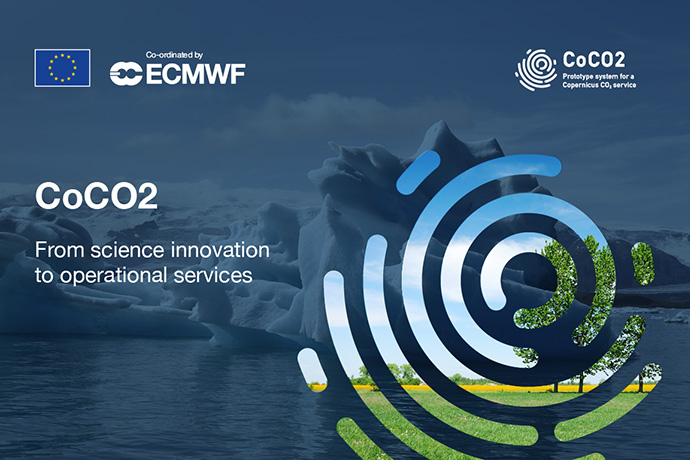
The official launch event of the EU’s Destination Earth (DestinE) second phase took place in June. DestinE, which aims to build a digital replica of our planet, is implemented by ECMWF, ESA, and EUMETSAT, under the leadership of DG CNECT.
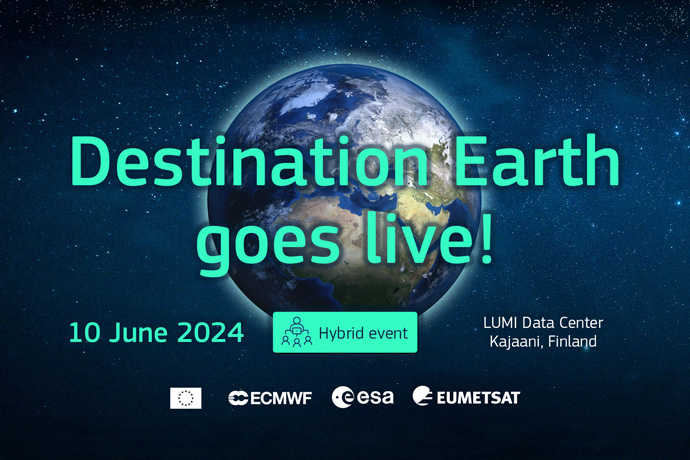
Other news articles
Additional reports can be found on the news page of the ECMWF website. For more developments on the Copernicus services run by ECMWF, consult the news pages of C3S and CAMS, and more DestinE articles can be found in the news section of ECMWF's DestinE website.
